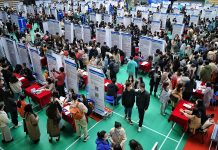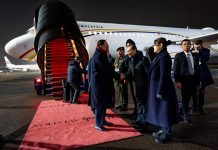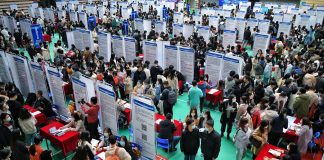In the first of our two-part series relating to flexible working in Asia, we examine data from our recently released 2017 Gender Diversity Report that highlights the value of flexible working. Next week, we look at how organisations can implement the practice within their operations to overcome any fears or misconceptions they may have about arrangement.
New research shows flexible working policies are highly valued by men in Asia nearly as much as women, according to recruiting experts Hays. The 2017 Asia Gender Diversity Report surveyed men and women from more than 30 industry sectors across China, Hong Kong, Japan, Singapore and Malaysia to find workplace flexibility is a hot button issue.
“Flexible working is still seen very much as something that benefits working mothers but our latest research shows that companies developing flexible work policies have to take a broader view,” says Lynne Roeder, Managing Director of Hays Singapore. FWAs (Flexible Work Arrangements) benefits both employees and employers, according to a statement by Singapore’s Ministry for Manpower (MoM). According to MoM, employees are better able to meet their work-life needs, while employers are better able to attract and retain talent, and improve the productivity of their workforce.
“We were surprised to find half of all male respondents in Asia already have access to flexible work options compared to just 40 per cent of our female respondents,” says Lynne.” “Furthermore, the majority of female and male respondents say being able to access agile/flexible work options is important to them with nearly a third of each describing this benefit as ‘very’ important.” “Also of interest is the fact the largest proportion of respondents of both genders are supportive of seeing more shared family responsibilities used as a way of breaking down gender bias and improving gender diversity.” Only a minority of participants in the Hays research view working flexibly as “very much” a career-limiting move, although most expected some negative impact. Men were more likely than women to be concerned that working flexibly could have a detrimental impact on their career.
By country, a massive 49 per cent of women and 43 per cent of men in Singapore say working flexibly is very important to them. Reflecting Singapore’s increased demand for flexible working, a Tripartite Standard on Flexible Working Arrangements (FWA) has recently been launched by Singapore’s Ministry for Manpower (MoM), a move that aims to create a more “supportive and conducive work environment” for employees of both genders.
Across Asia, most female respondents (45 per cent) say promoting shared parental responsibilities would “very much” boost efforts to address unconscious bias in the workplace and improve gender diversity while just over a third of men agree. The majority of men (42 per cent) and 38 per cent of women believe shared responsibilities would go some way to breaking down unconscious bias and improving gender diversity. A small minority, just two per cent, of women and men say there would be no benefit. Family responsibilities were also top of mind when participants were asked to nominate the diversity and inclusion initiatives they regard as the most helpful to their career.
The largest proportion of respondents in China (37 per cent), Hong Kong (26 per cent), Japan (29 per cent) and Malaysia (34 per cent) placed flexible working policies for parents at the top of their list. Whereas, in Singapore most respondents (31 per cent) regarded training and development of people managers as the most useful initiative. However, another 30 per cent placed flexible working policies for working parents at the top of their list.
Source: Hays Media Release




















